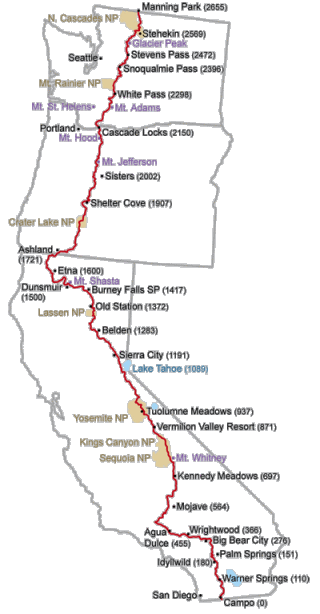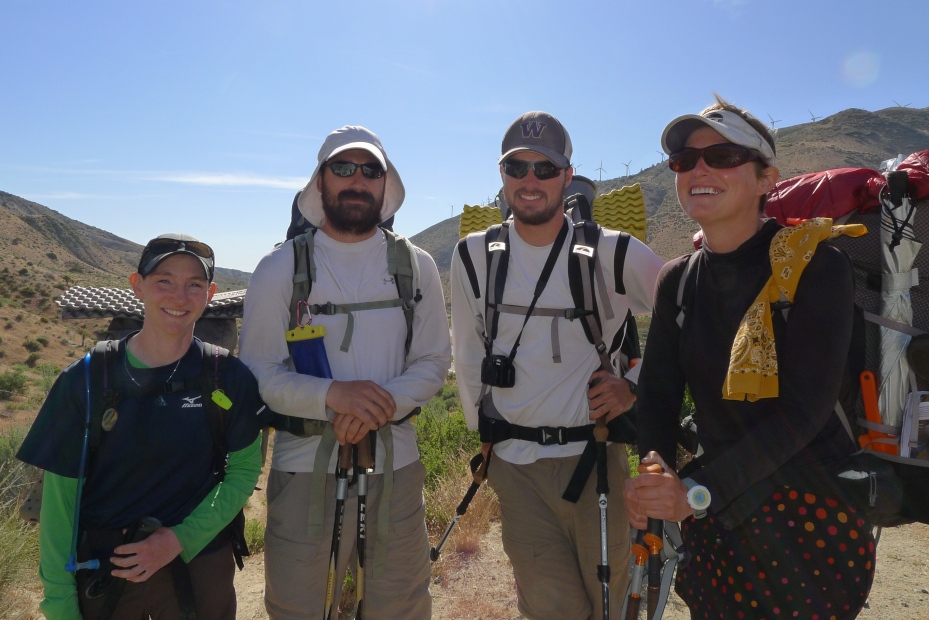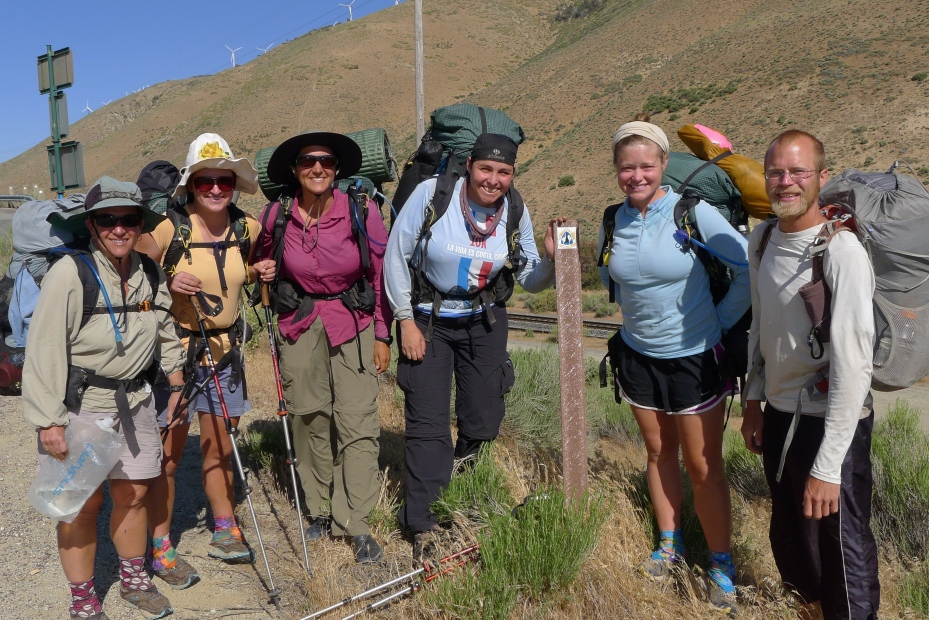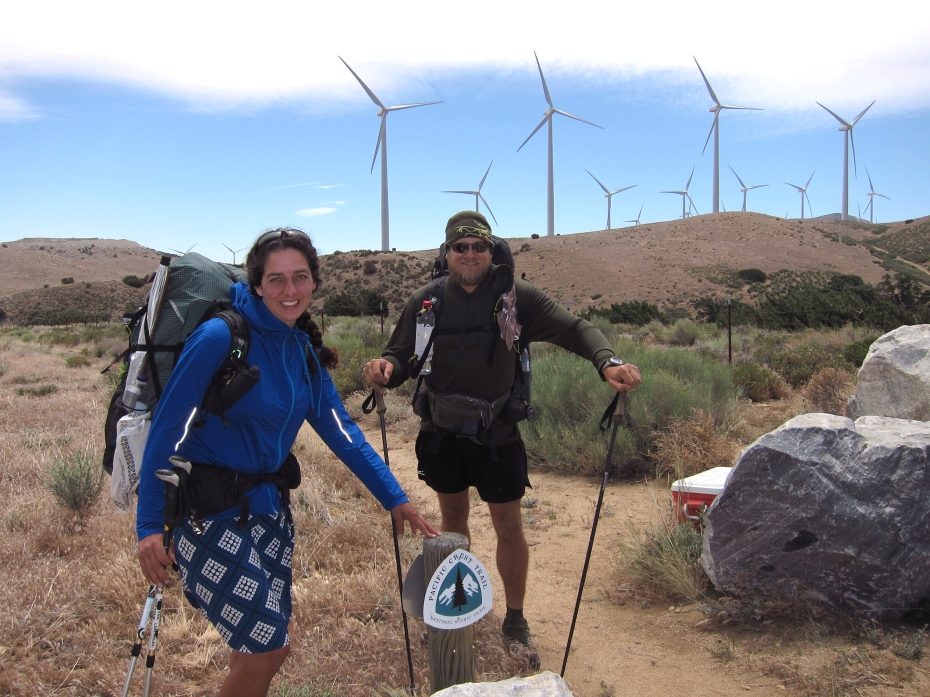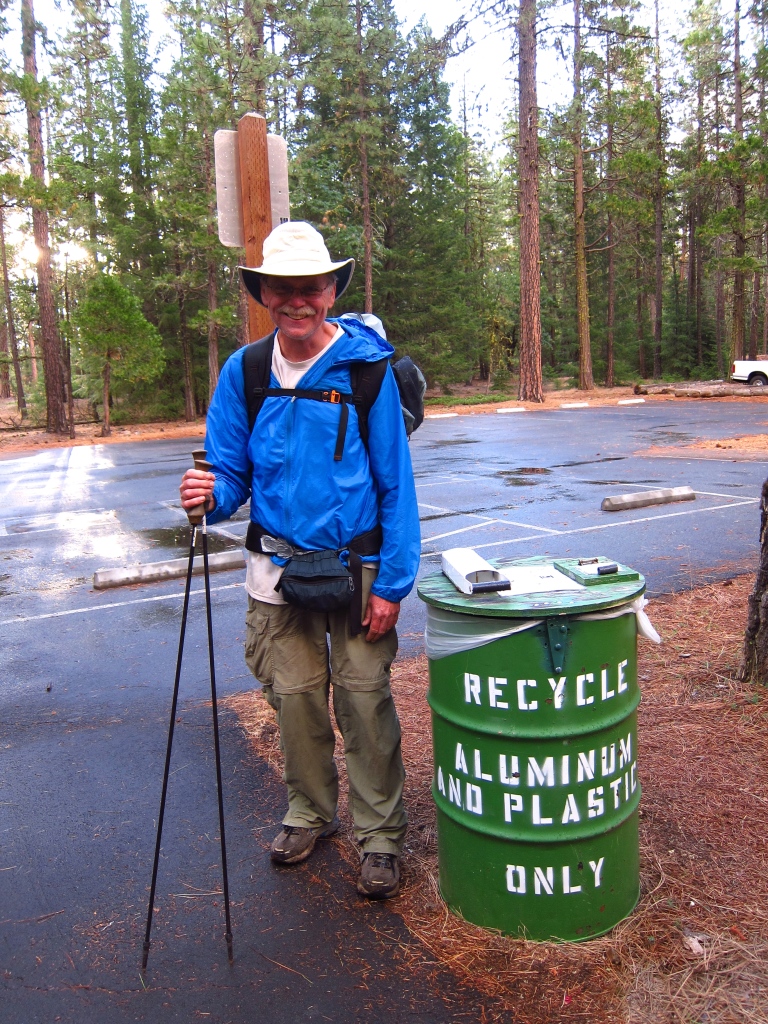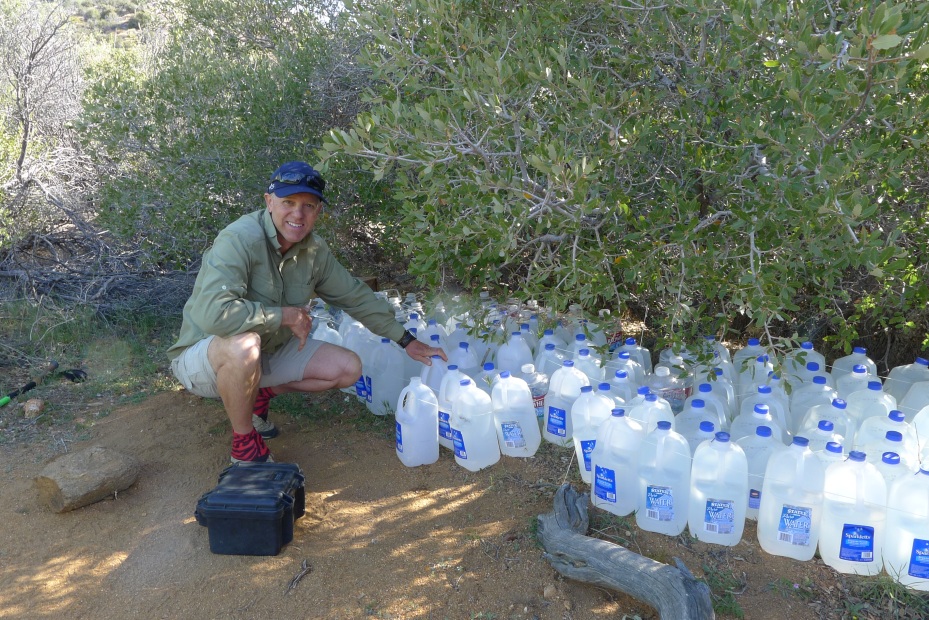Let the Adventure Begin!
Pacific Crest Trail Fun Facts from PCTA.org
PCT…
2650 miles
Passes by the town of Tehachapi just 11 miles east
Hikers have 5 1/2 month window of time to complete the trail hiking roughly twenty miles per day
Thru-hikers typically start around May 1st
Passes through three states (California, Oregon and Washington)
Climbs nearly 60 major mountain passes
Descends into 19 major canyons and
Ambles past more than 1,000 lakes and tarns.
PCT traverses…
3 national monuments
7 national parks
24 national forests and
33 federally mandated wildernesses.
PCT Unknown Facts…
- It was recently pointed out that fewer people have thru-hiked the PCT than have climbed Mt. Everest! Could it be that a thru-hike is tougher than climbing the tallest mountain on Earth?
- The PCT crosses the world-famous San Andreas Fault three times!
- As the crow flies the distance between Mexico and Canada is just over 1,000 miles. The PCT is two and a half times that.
- The PCT passes the three deepest lakes in the nation; Lake Tahoe (1,645 feet), Crater Lake (1,932 feet) and Lake Chelan (1,149 feet)
- Eric Ryback, popularly known as the first person to hike the length of the PCT, carried an 80-pound pack on his 1970 thru-hike. He had only five resupply packages on the entire trip, and was loaded with 40 pounds of food at the start of each leg. He often ran out of food and foraged or went hungry.
- In California, hikers and riders on the PCT often must cover 20 to 30 miles of trail between water sources. The longest waterless stretch on the trail is 35.5 miles, north of Tehachapi.
Southern PCT Terminus

Southern Terminus near Campo, California (Rockin’ and Dan)
Northern PCT Terminus

PCT Canadian Border: Breakfast Chicken, Rockin’, Stealthy, Dan

Pacific Crest Trail
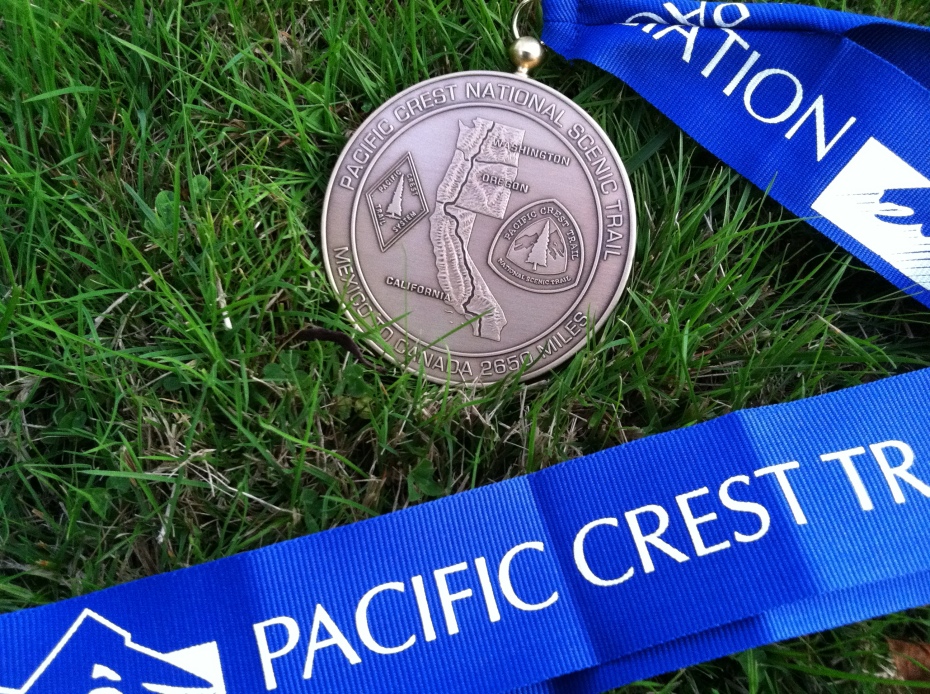
Pacific Crest Trail Completion Medal
Hikers and Trail Names
Many of the hikers we meet use “trail names.” The giving of trail names is a tradition that started with hikers on the Appalachian Trail. Trail names may result from a specific incident on the trail (such as “Stitches” or “Gottago”), from a person’s profession (“Chef”), or from a hiker’s personality or appearance on the trail.

Swami
Trail Angels
Trail Angels are people (some anonymous) who watch over hikers like guardian angels and provide help along the trail. In the desert, trail angels keep water caches stocked with jugs of water for hikers where there are insanely long distances between water sources. Others have been known to leave coolers along difficult stretches that contain goodies like soda, beer, fruit, and ice cream bars. I’ve heard stories from hikers about times when a hiker coming from the other direction tells them about treats left by a trail angel miles up the trail, and how they sprint to get to that cooler before the goodies run out. There are also trail angels who set up a grill and cook out for passing hikers over the weekend. Trail angels don’t just supply food. They also offer services like shuttles into town, or even places to stay for a night and to get a hot shower and do laundry. Again, it’s amazing how giving and supportive complete strangers can be along the trail. (Definition from Wired’s 2011 trail Journal)
Trail Journals
Dreams – 2010
Wired – 2011
Rockin’ – 2015
Mamma Bear and Monkey – 2012
Swami -2012
Sunshine and Balls PCT 2011, AT 2012, CDT 2013
Start Your Own Online Trail Journal
There is no right or wrong way to keep a journal, but the main theme of this journal is outdoor activities.
Writing Ideas:
- Things you learned in class
- Outdoor experiences you want to share
- Physical activities you are doing during the week
- New discoveries
- Photo or sketch
- Field trips
Trail Terms
Hiker Glossary
Trail Name
A nickname used by a hiker. A trail name can be chosen by the hiker prior to the hike, but is considered more official if it is given to the hiker during the hike. A trail name often derives from an unusual, humorous or significant characteristic or event associated with the hiker. Sometimes it will derive from something the hiker says or something that is said to the hiker.
The Kick Off
The Annual Day Zero Pacific Crest Trail Kick Off Party. An annual event organized by former through hikers for the benefit of current through hikers. The Kick Off is held at Lake Morena, 20 miles from the southern terminus of the trail, during the last week of April.
Cache
Water left beside the trail by trail angels for use by through hikers. Most of the caches on the Pacific Crest Trail are in the southern California deserts where reliable water sources are far apart.
Trail Magic
Unexpected generosity from a non-hiker.
Zero Day
A day in which you do no hiking. So named because you do zero PCT miles. A zero day is almost always taken at a town stop.
Cowboy Camp
Sleeping under the stars without a tent. Often done to save the time and effort of setting up a tent when the weather is expected to be good through the night.
Resupply Mail Drop
Supplies, mostly food, that a hiker arranges to have mailed to him along the trail. Mail drops can be sent to a post office near the trail via general delivery or to any of several hiker friendly businesses or trail angel homes.
The Water Report
The Water Report is an on-line resource where hikers can post the condition of various water sources along the trail. Hikers farther back in the pack can use that information to determine which water sources are reliable, and which are dry.
Hiker Trash
A general description of a through or section hiker, or of through hikers collectively. It probably comes from the fact that through hikers often are confused for homeless people during town stops.
Travel the PCT
Travel in 7 Minutes


